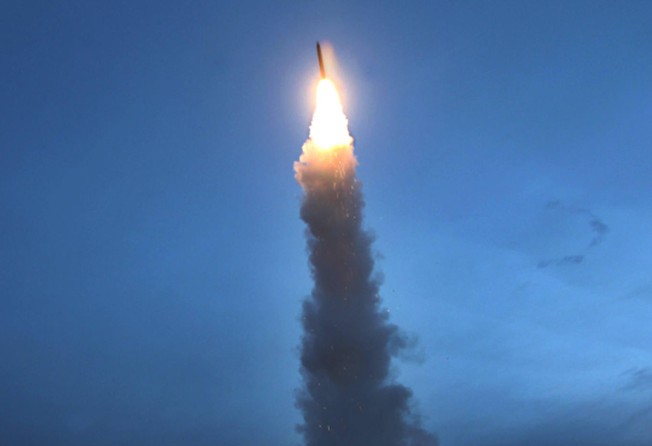
Turkey to buy Chinese missile defence system
In a contract worth US$3 billion, China Precision will help manufacture an advanced weapons system for the Western-aligned nation

China has won the bid to co-produce a multibillion long-range air and missile defence system in Turkey, in what is its largest and most advanced arms sales to a Nato country.

The winning Chinese FD-2000 system beat the Patriot, the Russian S-400 and the French-Italian Eurosam Samp-T, it was announced on Thursday.
The FD-2000 is the export designation of the HQ-9 air-defence system.
Turkey, which has the second-largest military force by personnel numbers in the Nato alliance, has no long-range missile defence system of its own, but Nato has deployed the US-built Patriot air and missile defence system there since 2012.
In January, Turkey restructured its US$4 billion surface-to-air missile programme, dubbed T-Loramids, which had originally been made as an off-the-shelf purchase consisting of radar, launchers and intercept missiles.
As a Nato member equipped with the US' Patriot defence systems, Turkey has been urged by its Western allies to remove China and Russia from its bidding list for air-defence projects because of questions over Chinese compatibility with its existing Nato-sponsored early warning architecture.
Raytheon, which builds the Patriot missile system, said it had been informed about the Turkish decision and hoped to get a briefing soon. "Nato has long supported the system, deploying Patriots in five aligned countries and, in 2012, providing a requested deployment to Turkey," Raytheon spokesman Mike Doble said. "Given this strong performance, we hope to have an opportunity to debrief and learn more about this decision,"
Analysts said the purchase was likely to irk the United States, and that Turkey chose the Chinese missiles probably due largely to cost concerns.
Shanghai-based military affairs expert Ni Lexiong said: "The technology is up to requirement, and the product may be cheaper than the US or Russian system … The development shows that Turkey does not necessarily have to accept bids from Nato allies."
Yue Gang , a Beijing-based military affairs commentator, said the contract marked the first time that China had exported advanced weapons to a Nato country.
"The long-term maintenance cost is also cheaper, which is suitable for a nation in an uncertain financial condition," Yue said. "The deal has opened a window for China to deepen military co-operation with Nato countries."
He said Turkey rejected Russia's bid probably because Moscow also supplied arms to Iran, which would have strategic implications for Turkey.
However, China Precision itself has come under scrutiny for possible missile sales to Tehran. In February, the United States announced sanctions on the company for violations of the Iran, North Korea and Syria Non-proliferation Act.
Beijing and Ankara have strengthened military ties in recent years, including the staging of a joint military drill last year.
Antony Wong Dong, chairman of Macau-based International Military Association, said China might export more advanced arms in the future, which could become a source of tension with the United States.